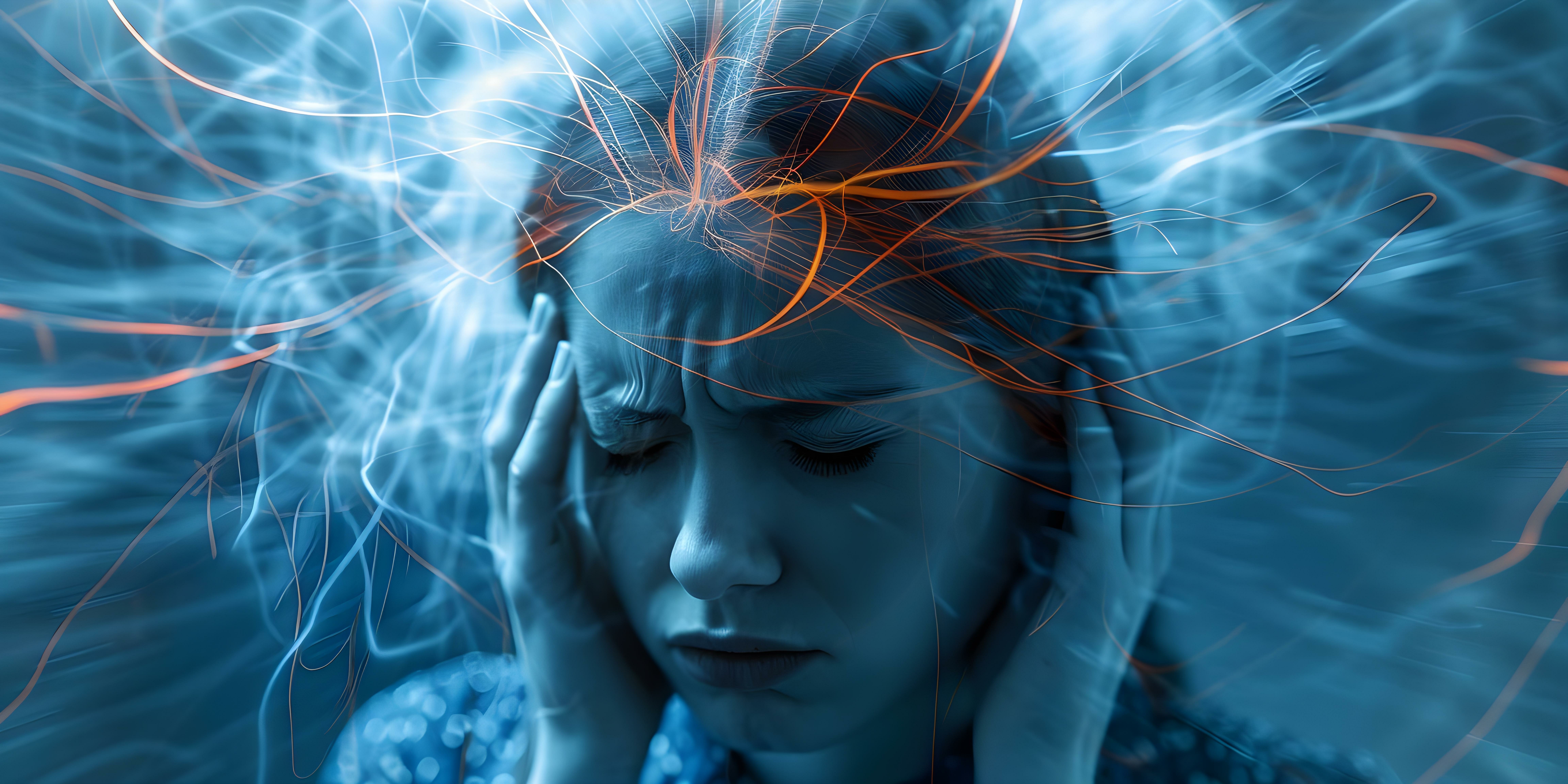Medical Insights into Traumatic Brain Injuries in Athletics
Traumatic Brain Injuries in Sports
Awareness of traumatic brain injury (TBI) has grown exponentially in the past several decades. The risks, symptoms, and pathology of TBIs are continually coming to light. TBI remains a major cause of death in the United States, contributing to 50% of all trauma deaths.
Sports-related TBI has been a subject of particular attention. Contact sports at both professional and varsity levels put athletes at risk of brain injury. An estimated 62,218 cases of concussion, or mild TBI, occur annually among high school varsity athletes. Football, wrestling, soccer, basketball, baseball, field hockey, and volleyball are among the most common perpetrators of TBI.
Due to its prominence, symptoms of traumatic brain injury may be dismissed by both athletes and practitioners; however, the available literature reveals a myriad of side effects if TBI goes untreated or undetected. For at-risk athletes, it’s vital to monitor TBI to maintain physical performance, mental wellness, and lifelong health.
Sports-Related TBI
Approximately 10% of the 3.8 million mild TBIs that occur each year are sports-related. While the rate of TBIs remains high for professional athletes, high school and college athletes are particularly at risk of TBI. Sports and recreational activities account for over 21% of all traumatic brain injuries for American children and adolescents. While many sports are associated with TBI, one observational study estimated that football accounted for 63% of mild TBI cases among high school athletes.
The rate of TBI among adolescents remains singularly troubling. In younger subjects, traumatic brain injuries are associated with increased severity and prolonged recovery. High engagement with contact sports makes adolescents particularly at risk of TBI.
Mild TBI
Mild TBI is the most common traumatic brain injury. Concussions are believed to account for 80% of TBI-related emergency visits, and athletes are common patients. Any significant force to the head can result in mild TBI. While personal equipment like helmets and mouthguards reduce the risk of severe TBI, skull fracture, and death, these protective measures do not eliminate the risk of mild TBI, which remains common in contact sports. Sports with consistently high risk for mild TBI include football, men’s ice hockey, and women’s soccer.
Moderate to Severe TBI
Sport-related collisions and falls can cause much greater damage. Severe traumatic brain injuries may include epidural hematomas and malignant brain edema syndrome, among other conditions. As much as 90% of sports-related severe TBIs are acute subdural hematomas. Unsurprisingly, severe head injuries in sports are most commonly associated with football. Additionally, there is a significant connection between male subjects and severe TBIs. One comprehensive study showed that male subjects had three times as many sport-related TBIs and were 1.85 times more likely to have severe sport-related traumatic brain injury than female subjects.
Effects of TBI
Short-Term Symptoms
Initial symptoms are often seen immediately following the injury or within several minutes. These initial signs of mild TBI include headache, vomiting, loss of consciousness, slurred speech, and disequilibrium. However, both mild and severe TBIs may show no short-term symptoms at all. According to a survey of 1,532 varsity football players from 20 high schools, 66.4% of unreported mild traumatic brain injuries go unreported because the subject believed that the injury was not serious enough to warrant medical attention. An additional 36.1% were due to a lack of awareness of a probable concussion.
Long-Term Effects
The long-term consequences of TBIs have been the subject of significant scholarship. Even mild TBIs may have harmful lifelong effects. One cohort study monitored high school athletes who reported a headache approximately 1 week after sustaining a mild TBI. The study found that players with post-traumatic headaches performed significantly worse in reaction time and memory than those who did not experience a headache. These students were also more likely to experience anterograde amnesia.
Subjects who have experienced a mild TBI are also predisposed to future TBIs. College football players with a history of 3 or more previous concussions are 3 times more likely to have an additional concussion than players with no concussion history. A history of concussion is also associated with slower recovery and neurological function.
Chronic TBI Disorders
Chronic TBI disorders can result from both mild and severe TBIs. The spectrum of chronic TBI disorders includes chronic traumatic encephalopathy (CTE), dementia pugilistica, post-traumatic parkinsonism, chronic post-concussion syndrome (CPCS), and post-traumatic dementia.
As shown in a case-controlled study, traumatic brain injuries can also predispose patients to several comorbidities, including anxiety and depression. In one review, TBI was associated with a 2 times greater risk of stroke. Additional evidence shows that exposure to multiple concussions may increase the risk for neurodegenerative disorders, even several years after the initial injury. In a study focused on retired professional football players, a significant association was found between those who sustained three or more concussions and those who had clinically diagnosed mild cognitive impairments (MCI). Compared to those with no history of concussion, retired players with three or more reported concussions were five times more likely to have an MCI diagnosis. Likewise, a history of head injury is considered to be a risk factor for Alzheimer’s disease.
Treatment and Therapy
Treatments for TBIs include medications such as diuretics, physical therapy, and other practices to decrease neuroinflammation. Following TBI, a period of carefully monitored rehabilitation is essential. The variable clinical presentations of TBI make medical intervention a necessity. In many instances, due to the culture of competitive sports, athletes may be tempted to ignore or underscore their symptoms to return to play sooner. However, it is vital to follow strict guidelines before injured athletes resume previous activity. Returning to play before proper treatment can contribute to repeated brain injury and exacerbate existing symptoms. Patients may be advised to wait 4 to 6 weeks before returning to play to protect from reinjury.
TBIs may take several weeks or months to heal completely. Mistreatment and misdiagnosis of traumatic brain injury may contribute to severe complications. To provide the best patient care, it’s important to properly gauge the extent of the injury, develop a personalized plan, and closely monitor the effects of treatment. In-depth testing is necessary for proper diagnosis and treatment.
Diagnostics
Clinical diagnosis is often used to identify TBI in the field. However, as shown by a recent review, current clinical assessments are not sensitive enough to reliably detect traumatic brain injury. As a result, injuries may be underestimated or remain completely undetected. Innovations like the WAVi portable EEG brain scan can be effectively used to measure reactions from the brain and the body to provide a direct assessment of brain function. The WAVi can provide a baseline scan following a traumatic event. Such diagnostic tools, combined with cognitive assessments and in-depth blood panels, are improving diagnosis, management, and treatment of TBI.
TBI Testing with Access Medical Labs
Emerging research reveals that damage to the hypothalamus-pituitary area, which coordinates the endocrine system, is a significant mechanism of TBI. As a result, growth hormone (GH) is the most common hormone affected by TBI. Levels of GH and other hypothalamus-pituitary hormones offer unique insight during the diagnosis and treatment of TBI. Learn more about how TBI tests measure the hormones most affected by traumatic injury to the brain.
Access Medical Labs offers comprehensive hormone blood panels for traumatic brain injury testing. Our traumatic brain injury panel includes biomarkers such as:
- Growth hormone
- Pregnenolone
- Estrogen
- Testosterone
- Cortisol
- Insulin
- Triiodothyronine (T3)
- Thyroxine (T4)
Alongside a full medical history and detailed cognitive assessments, our TBI panel provides vital data for patient care. Our state-of-the-art facilities and staff ensure quality data. With results within 24 hours, our testing is ideal during diagnosis and throughout treatment. Explore more from Access Medical Labs.
Access Medical Labs is your premier partner in diagnostic testing, providing cutting-edge solutions for healthcare professionals. Our simplified process means you receive your complimentary supplies directly to your office, and all you have to do is spin and send the specimens to our facility for next-day results. Spend less time on labs and more time with your patients. Register today for efficient and convenient diagnostic services.
You May Also Like
These Related Blog Posts

How Allergic Inflammation Impacts Health

The Neurological Side Effects of Food Sensitivities


